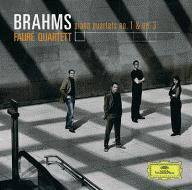Does your organization (or union) hinder you from being a fan?
Musicians lead busy lives, particularly classical musicians. It takes hours and hours (and hours) of practice to hone our craft, to really be at the top of our game. Add to that many classical musicians juggle multiple jobs, from teaching students, to random gigs and large ensemble rehearsals just to make ends meet. Time is at a premium for many of them, so when do they have the chance to be a fan? When are they suppose to spend time on Facebook and Twitter talking about what their ensemble is up to?
However, many musicians are on Facebook and Twitter, thousands of them! They are talking about their lives just like everyone else. The root for their favorite teams, share recipes, post pictures of their travels - but seldom do they talk about the organization they play for. Knowing a lot musicians, connecting with them on Facebook and Twitter, and talking to them on (and off) line, I believe there is a culture in the American orchestra that stifles musicians from sharing their passion about their organization with their friends.
It comes from a variety of different places
- Marketing Departments want to control the message
- Unions what musicians paid for anything (and everything) they do for an organization
- Musicians do not feel a connection because they are contracted to play and therefore separate from being a part of the ensemble
Marketing Departments
Get over yourselves. Musicians are the most passionate people you have. They love the music so much they are willing to spend hours practicing, not just the music in the next concert, but constantly honing their skills. They are like doctors and lawyers, who must continually study to stay up to date with what's happening in their profession - musicians must constantly practice to stay at the top of their game. Let them comment. Let them share what they think, even if it doesn't quite fit into the box you are trying to present. Their passion will go a long ways toward creating new boxes and new ideas of how to build an audience.
Unions
I firmly believe your role it to ensure organizations do not take advantage of musicians. Great! But don't stand in the way of the musicians wanting to help orchestras succeed. In the current climate of orchestras failing to meet fiscal goals, it's time we started working together, to allow the musicians share their time and efforts in promoting the symphony without always needing to have a paycheck at the end of it.
Musicians
If you don't feel part of your organization, if you're only putting in your time for the paycheck, you are part of the problem. I understand that often this attitude is brought on by administrations pushing you away - administrations that treat their musicians as only contract labor should be ashamed of themselves; they are a detriment to music everywhere. You can push back. Talk to the staff and see how you can get involved. Go ahead and post to Facebook and/or Twitter what you're doing and let them try and admonish you for it. Time and time again, the voice in the public sphere is stronger than the silence demanded by the powers that be.
In the end, it is the passion of those of us who love music that will lead the way for new people to discover what we already know, classical music, particularly live in the concert hall, is an amazing experience. Share that passion - share posts your organizations are putting up on Facebook, re-tweet the tweets your organization sends out. Extend their reach to the people you know and encourage the people you know to do the same. THIS is the power of social media. Don't let anyone stifle your passion for the music.

Comments